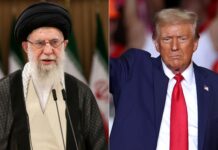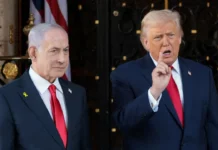DHARAMSHALA: On the auspicious day of June 11, 2025, the Library of Tibetan Works and Archives (LTWA) honoured the 55th anniversary of its establishment and the laying of its foundation stone, which was graciously blessed by His Holiness the 14th Dalai Lama in 1970. According to a report by the Central Tibetan Administration, it is one of the most important libraries and institutions for Tibetan literature in exile.
The 55th anniversary was attended by the Chief Guest, Sikyong Penpa Tsering of the Central Tibetan Administration, and Special Chief Guest Speaker Khenpo Sonam Tenphel. The ceremony began with the Chief Guest and Special Guest lighting the traditional butter lamp, followed by Geshe Lhakdor, the LTWA Director, delivering a welcome address. In his speech, he provided a brief outline of the Library’s 55-year history and founding mission, according to CTA.
He stated that the key goals of LTWA are to serve as a vital source of Tibetan cultural knowledge while also fostering an academic environment that stimulates study and learning among researchers and students. He emphasised that such efforts are especially crucial in today’s world, where political and spiritual uncertainty continue to challenge communities around the world, according to the CTA report.
Former LTWA employees gave speeches, expressing their personal views, work experiences, and perspectives on the Library’s critical role in conserving and promoting Tibetan history. Sikyong provided an account of the LTWA’s history and accomplishments in the preservation of Tibetan writings, old manuscripts, artefacts, and other aspects of Tibetan cultural heritage, according to the CTA report.
When Communist China annexed Tibet in 1959, it put Tibetan culture in grave peril. Many schools, historic manuscripts, artefacts, and other aspects of Tibetan history were taken or destroyed in the name of modernisation. Seeing this serious threat, His Holiness the 14th Dalai Lama established the Library of Tibetan Works and Archives to conserve, safeguard, and promote Tibetan culture, according to CTA.
He further highlighted that when His Holiness the 14th Dalai Lama first arrived in exile in India and outside of a foreign country, he did not speak of Tibet’s struggle or exile, but rather of human values, empathy, and compassion, which sparked increased interest in Tibetan Buddhism and culture around the world. Foreigners and politicians gradually began to support the Tibetan cause and struggle, CTA reported.
The event concluded with closing remarks and a vote of appreciation from Ngawang Yeshi, LTWA’s General Secretary, who expressed deep gratitude to all of the Library’s guests, former personnel, and supporters. He thanked them for their ongoing support and efforts to safeguard the institution’s purpose of preserving Tibetan knowledge and tradition, CTA stated. (ANI)
Also Read: Tibetan leaders in Tokyo expose China’s oppression, call for global support






